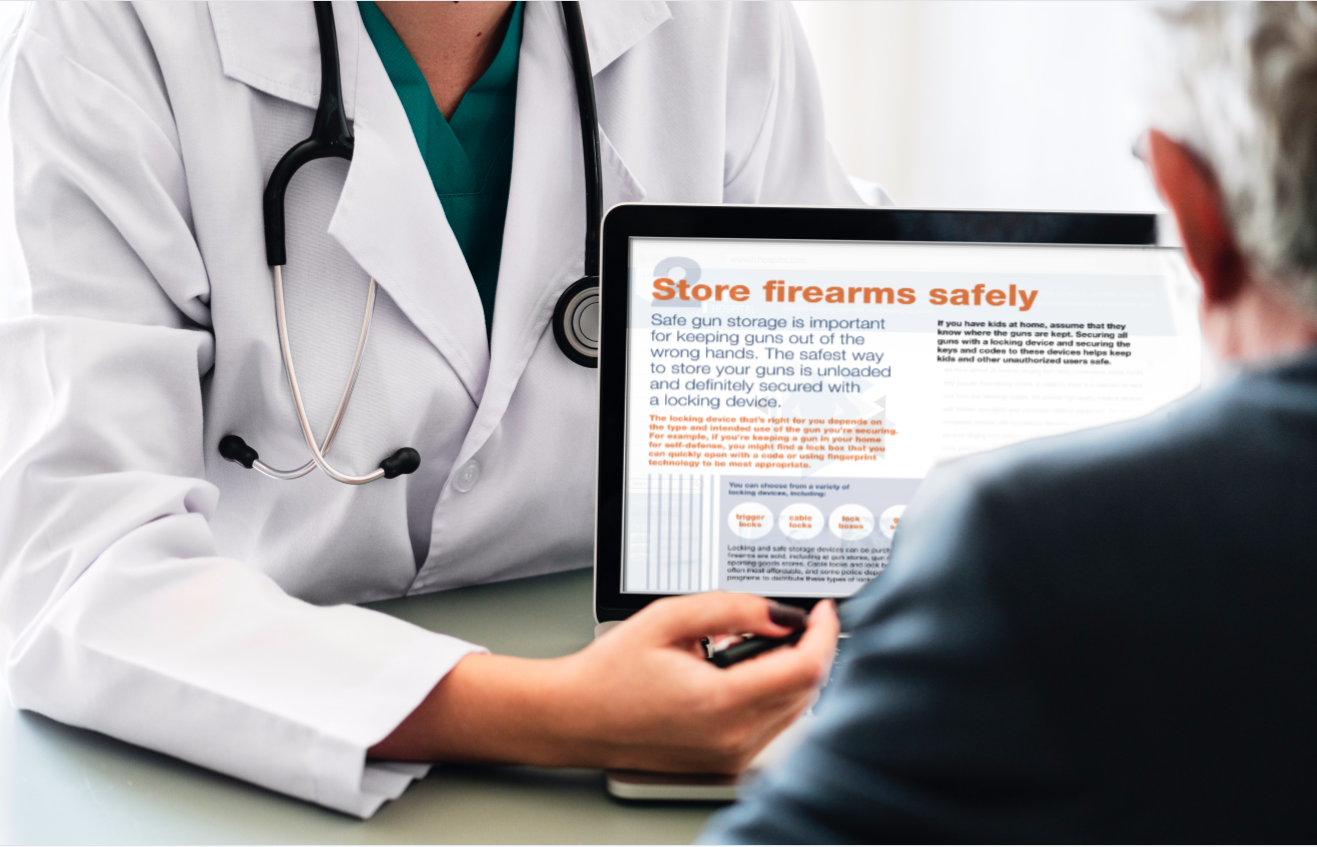Preparing to Counsel
Before you counsel patients, consider your knowledge of the topic. Be ready to answer questions or refer patients to another source for more information when necessary.
If you need further information, see an overview of firearm laws or other additional materials on provider counseling.
We recommend an approach to firearm counseling that:
- Relates explicitly to the patient’s health and wellbeing
- Acknowledges local firearm customs and and reasons for firearm ownership
- Is tailored to the patient's risk and situation
- Is collaborative and respectful
- Happens within an established patient-physician relationship, when possible
- Includes appropriate follow-up
To maximize receptiveness, take a respectful and collaborative approach.
Firearm ownership may reflect longstanding values and beliefs. Keep in mind that many firearm owners take safe firearm practices and safe firearm storage seriously. Clearly explain why firearms are clinically relevant (i.e., who's at risk and for what type of harm) and work together with the patient to find solutions to reduce risk that work for them.
Risk for firearm injury and death change as circumstances in the home change. Re-evaluating the risk of firearm injury and death in the home to reflect current circumstances—such as who lives in the home, and any frequent visitors or guests who belong to high-risk groups—is an important step for the safety of everyone in a home with firearms.
As with other conversations related to risk and safety hazards, this conversation might be difficult.
Be prepared to explain why you’re asking about firearms and what you will do with the patient’s answers. Reassure the patient that the information will remain confidential unless there’s an immediate emergency, and that your interest is at all times in the health and safety of the patient and the patient’s loved ones.


 Questions or comments?
Questions or comments?